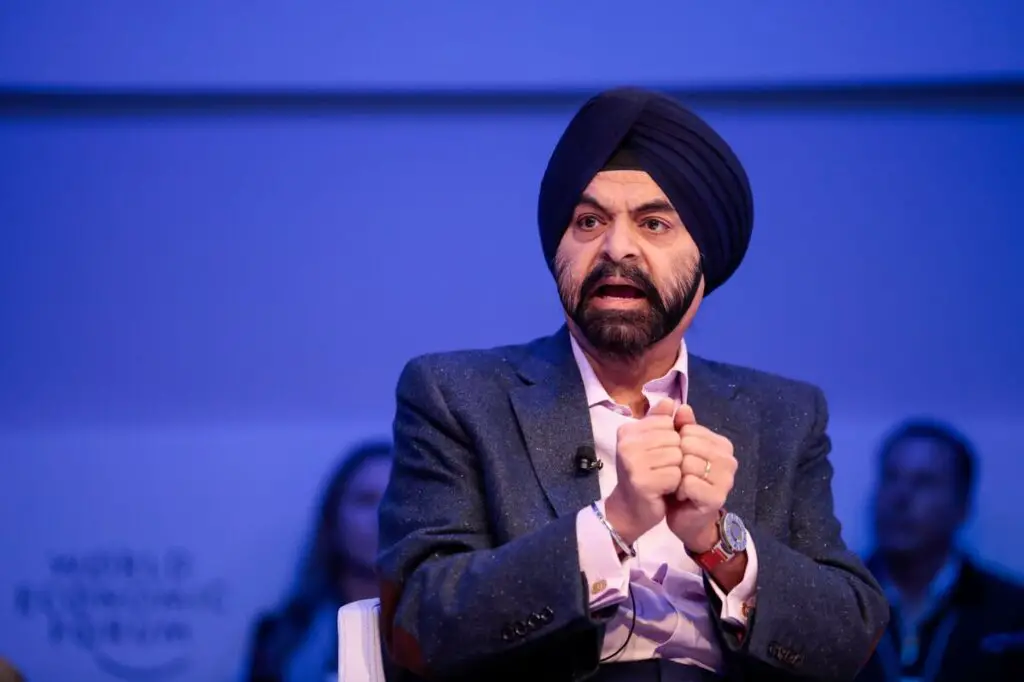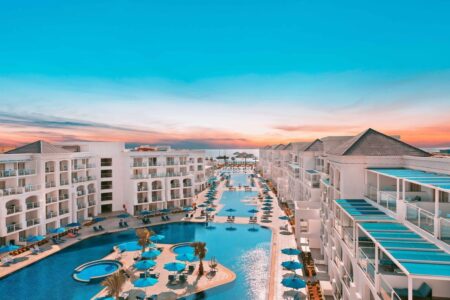- US World Bank President nominee Ajay Banga chooses Africa for his first tour
- AfDB president Dr. Akinwumi Adesina calls for a new measure of economic growth
- AfDB launches Adesina Africa Industrialization Index (AII)
The World Bank is getting a new president and it will be likely US-nominee Ajay Banga who for his first global tour, chose to visit Africa. What does this maiden tour mean for the continent?
Back in February, US President Joe Biden announced Ajay Banga as the United States’ nominee for President of the World Bank Group. Should he be approved, Ajay Banga will be replacing the incumbent president, David Malpass, whose term ends in June.
Among his first moves on his way to the top office in the world’s largest financial institution, Banga, is making a strategic visit to Africa.
For the first stop of his World tour, Mr. Banga flew to Abidjan Côte d’Ivoire on March 6th 2023, and visited the headquarters of the African Development Bank Group (AfDB) on Monday where he was hosted by the Bank Group President, Dr. Akinwumi Adesina.
In the executive meeting, Banga met with members of the AfDB senior management along with directors of the group’s board.
Also Read: AfDB president woos UK investors to take advantage of AfCFTA
Why Africa?
Mr. Banga said he chose to start his global tour in Africa because there is, a “…need for the World Bank Group to develop a strong partnership with the African Development Bank Group that would help deliver transformative results.”
He highlighted his top three priorities, should he get the job: Inequality, tension between humanity and nature, and a “tendency to apply short-term solutions to long-term problems which only delivers poor results.”
Mr. Banga also admitted that world challenges only got worse owing to the Covid-19 pandemic, ongoing climate change, and the Russia-Ukraine War.
The former Mastercard CEO also put emphasis on the role of technology in helping to tackle world challenges adding that the role of the private sector in mobilizing capital resources cannot be overlooked.
“For economic development, this applies both to private sector capital, as well as to private sector ingenuity and innovation,” he said in his maiden trip to Africa.
AfDB President Adesina underscored the need for partnership between the two financial bodies but also called for a new direction in their dealings or what he termed as; “a new way of working between the World Bank and the African Development Bank.”
“It is more than financial. It’s more about how we work to optimize resources by engaging governments, the private sector, and other stakeholders to deliver meaningful change.,” he said.
AfDB president Adesina also seconded Mr. Banga’s view on the devastating effects of climate change which he described as ‘the most serious existential threat to humanity.’
In a very somber tone, Mr. Adesina said climate change is decimating lives in Africa and the rest of the world. Due to climate change, there is a lot of displacement of people, an increased number of refugees, and worsening poverty.
“It is what I call the triangle of disaster. You have increasing poverty, rising youth unemployment, and environmental degradation, and this is a breeding ground for terrorism,” he cautioned.
To address climate change issues, the AfDB president urged Mr. Banga on the need for a ‘global security council on environment and biodiversity,’ because these issues are not getting the attention or priority that they deserve.
Adesina called for a rethink and re-adaptation of a “new way of measuring the wealth of nations’ turning away from the traditional measure of gross domestic product.
“This does not consider important factors like a country’s contribution to carbon emission and impact on biodiversity,” he said.
On unemployment, Mr. Adesina said there is a need for increased economic opportunities and more so in rural areas. However, the trouble remains that most African countries operate individually, and even where there are large regional bodies they only serve to ease trade but do not work together for common solutions to common problems.
Also Read: Adesina AfDB’s President again despite fallout with the US
A new measure for Africa’s economic performance
On a related note, a new report from the African Development Bank claims that top economic performers in Africa can be seen not necessarily in countries with the biggest economies, but rather, as ‘countries that generate high manufacturing value-added per capita.’
According to the report, which was co-prepared by the African Union and the United Nations Industrial Development Organization (UNIDO), 37 of Africa’s 52 countries have become more industrialized over the past eleven years alone.
The report, the Africa Industrialization Index (AII), provides a country-level assessment of 52 African countries’ progress across 19 key indicators, the AfDB explains.
“The report will enable African governments to identify comparator countries to benchmark their own industrial performance and identify best practices more effectively,” writes the AfDB in defense of the value of the report towards national development of individual countries in Africa.
The top six indicators listed in the index includes, manufacturing performance, capital, labor, business environment, infrastructure, and macroeconomic stability.
When it comes to industrialization, the index ranks countries using three dimensions: performance, direct determinants, and indirect determinants.
Here, the experts say the direct determinants are those that cover endowments such as ‘… capital and labor and how these are deployed to drive industrial development.’
The indirect determinants are the enabling economic growth conditions such as macroeconomic stability, sound institutions, and infrastructure.











